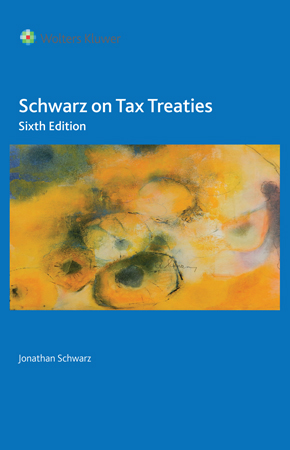We are happy to inform you that the latest issue of the journal is now available and includes the following contributions:
Rita De La Feria, What Is Tax Fairness?
In the last two decades, the term ‘fair taxation’ has become ubiquitous in the European public debate. From a political economy perspective this increased popularity is not difficult to understand: the term is sufficiently vague to cover different taxing preferences, appropriately simple to be intuitively understood by voters, and suitably pro-social to convey a compelling story. From a normative perspective, however, it is precisely this vagueness and simplicity that renders the term problematic. From both a theoretical and a policy perspectives, what is meant by fair taxation? What is the impact of taxation on inequalities, broadly construed, and to what extent should the tax system be used to redress them? To answer these questions, the European Association of Tax Law Professors (EATLP) embarked on a massive global research project on ‘Taxation and Inequalities’ in 2022. The overall aim of the project is to fill the scholarship gap and inform policy, by presenting a novel analytical and conceptual framework of taxation and inequalities, informed not solely by tax law, but also by human rights, constitutional and administrative law, as well as public economics, political economy, moral philosophy, and moral and social psychology. This Editorial introduces the core issues at stake, as discussed at the EATLP Congress, held at Antwerp University, in June 2024.
Mees Vergouwen, Conflicts Between Directives and Tax Treaties: Which Obligation Takes Precedence? Three Perspectives
Since 2014, directives in the area of direct taxation may include an obligation to tax income. This article examines the question of which obligation should prevail in the event of a conflict between a directive’s obligation to tax and a tax treaty obligation not to tax. This question of precedence is considered from three different perspectives: the international law perspective, the national law perspective and the European law perspective. This article concludes that the international law perspective, taking into account the national law and European law perspectives, appears to be, essentially, decisive (except for those EU Member States that can override, as a matter of national law, tax treaties). Based on this conclusion, it is recommended that tax treaties that (may) conflict with directives be renegotiated. The purpose of such renegotiations could be to include a subordination clause pursuant to which the tax treaty does not apply insofar as its application is incompatible with a particular directive or Union law obligations in general.
Sophia Piotrowski, Interpretation of National Law as a Probatio Diabolica for the Commission?: The CJEU’s Judgment in Engie
With its judgment in Engie, the CJEU has annulled yet another Commission decision on the state aid compatibility of Member States’ tax rulings. The Grand Chamber found that the Commission and the General Court had incorrectly identified the reference system of taxation made up of the ordinarily applicable national law of Luxembourg. When it comes to the interpretation of national law in the state aid procedure, the interpretation provided by the Member State is generally decisive. A high evidentiary threshold applies if the Commission wants to depart from this interpretation. This holds all the more true for Member States’ General Anti-Abuse Rules (GAARs), which are by their very nature general. The judgment could have wide-reaching implications for the enforcement of state aid law by the Commission regarding all types of cases where the interpretation of national law is not altogether clear. For example, the interpretation of national law is a key point in the UK Controlled Foreign Company (CFC) case, which is why AG Medina in her conclusions draws heavily on the Engie judgment. As a result, the Commission will probably lose the UK CFC case.
Antoni Bergas Forteza, Convergence between the Subject to Tax Rule (Pillar Two) and the Proposal for a Council Directive on a Common System of Taxation Applicable to Interest and Royalty Payments Made between Associated Companies of Different Member States
During recent years, the OECD has carried out continuous work regarding the development of the rules that make up Pillar Two, that is, the Income Inclusion Rule (IIR) and the Under taxed Payments Rule (UTPR). Along these same lines, the European Union has followed the same steps and has developed the normative introduction of the same rules. Now, with respect to the Subject to Tax Rule (STTR), because it is applicable through a bilateral tax treaty, its inclusion at the European regulatory level is not so direct; however, there are regulatory proposals capable of providing a tax response similar to that sought by the STTR of the OECD Pillar Two. An example of this is the Proposal for a Council Directive on a common system of taxation applicable to interest and royalty payments made between associated companies of different Member States.
More from our authors:

|
Schwarz on Tax Treaties, Sixth Edition by Jonathan Schwarz € 211 |